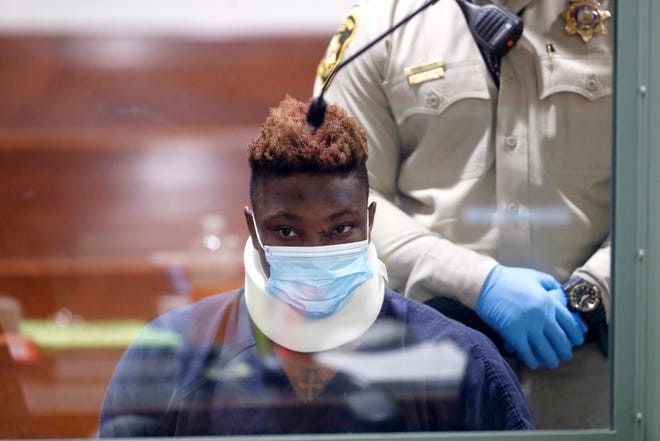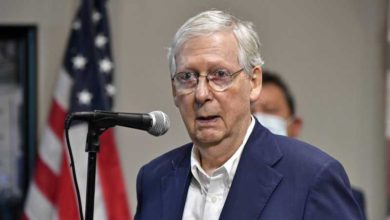
NFL wide receiver Henry Ruggs III was driving 156 mph and had a blood alcohol level of .161 – twice the legal limit in Nevada – prior to the fatal crash early Tuesday morning, according to prosecutor Eric Bauman, the Las Vegas Review-Journal reported from Ruggs' court appearance Wednesday morning at the Las Vegas Justice Court.
Judge Joe Bonaventure said he cannot recall a speed that high in his career on the bench, according to the Las Vegas Review-Journal Review and television reporter Hector Mejia, who works for 8 News Now, the CBS affiliate in Las Vegas.
A preliminary investigation by the Las Vegas Metro Police Department indicated Ruggs' Chevrolet Corvette crashed into the rear of a Toyota RAV-4, which then caught on fire. The body of a woman was discovered inside the Toyota.

Ruggs, 22, and a female passenger were taken to a hospital and treated for non-life-threatening injuries, while the driver of the other car was killed.
At the court appearance Wednesday, the judge set bail at $150,000 – the state requested bail be set at $1 million – with an electronic monitoring program and ordered Ruggs to abstain from alcohol and other controlled substances, Mejia reported. Ruggs also was ordered not to drive and to surrender his passport, according to Mejia.
Ruggs, who was released by the Las Vegas Raiders after the accident, will charged with DUI resulting in death, which under Nevada law is a Class B felony. A conviction on that charge carries a sentence of two to 20 years in prison.
Ruggs also is facing a charge of reckless driving resulting in death or substantial bodily harm, which carries a sentence of one to six years.
Ruggs also was in illegal possession of a firearm, Mejia reported.
Mejia reported that attorney David Chesnoff, who is representing Ruggs, said, "What we have is a young man who has never been in trouble before" and he requested bail of between $100,000 and $150,000.
After his release by the Raiders, Ruggs is now a free agent and can sign with any of the other 31 teams. If he does, however, he could be placed on the commissioner's exempt list under the NFL's personal conduct or substance abuse policies.
Contributing: Steve Gardner










